How pre-conditions to inclusion changed the life of one young man in Fiji
Idpd-case-studies, Pacific, Stories | June 25, 2024
People with disabilities face barriers to inclusion throughout all touchpoints in society. From access to health, social services, education and employment, to transport and social infrastructure, people with disabilities are being left behind.
What can be done to eliminate these barriers to inclusion and enable full, effective and meaningful participation of people with disabilities?
It starts with addressing the pre-conditions to inclusion. These pre-conditions are accessibility, assistive technology, support services, social protection, non-discrimination and community based inclusive development.
The pre-conditions to inclusion ensure that people with disabilities have their needs and priorities met and are able to access essential support structures, enabling them to live their lives as they want to live them, wholly and meaningfully.
For 36-year-old Isireli Kotoisuva, pre-conditions to inclusion have helped eliminate barriers and opened a wealth of opportunity. Yet, for Isireli, as for so many people with disabilities around the world, accessibility remains a major barrier in his ever day life.
This is his story.
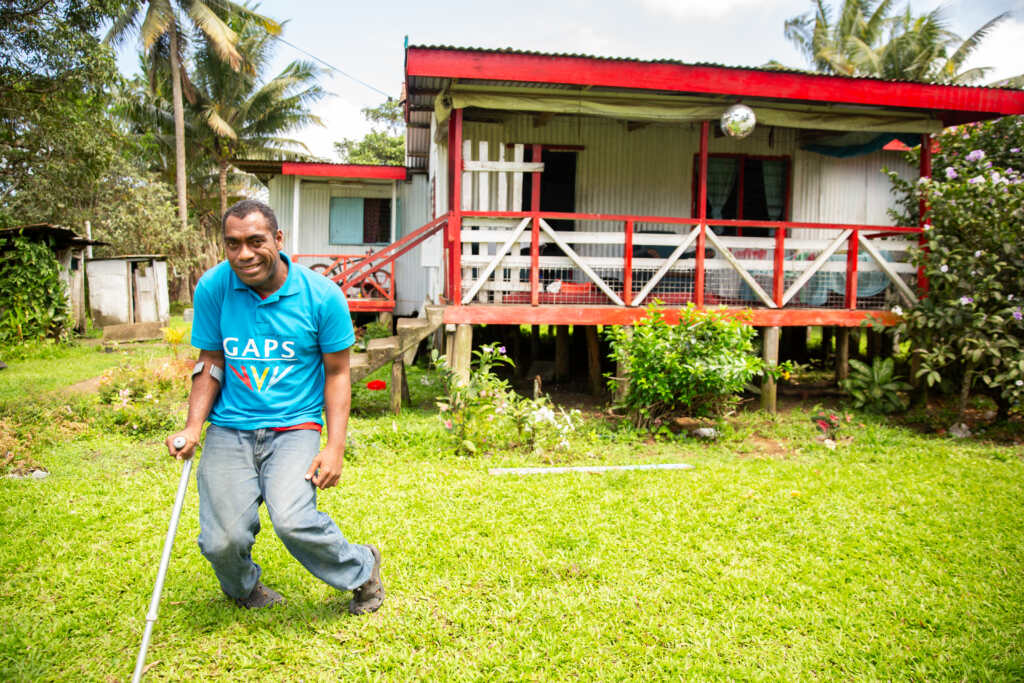
Born with Cerebral Palsy in 1986 in the Fijian Province of Tailevu, Isireli faced adversity from his first breath. With limited access to medical support in his remote village, Isireli was confined to his house, with his family unsure how to provide the support and care he needed. “All he could do was crawl on the floor, said Isireli’s mother, Vulase.”
When he was three years old, Vulase, learned about an Early Intervention school in Suva. This rehabilitation centre had full time medical staff, and wards for children with disabilities to stay long term. Isireli lived there for three years.
Throughout his residency, Isireli’s family was equipped with the information, training and assistive devices they needed to support Isireli as he navigated his childhood and his disability. The centre installed assistive devices in their family home, including railings and crutches, and his mother underwent training with the centre’s nurses to provide necessary support for Isireli away from the centre.
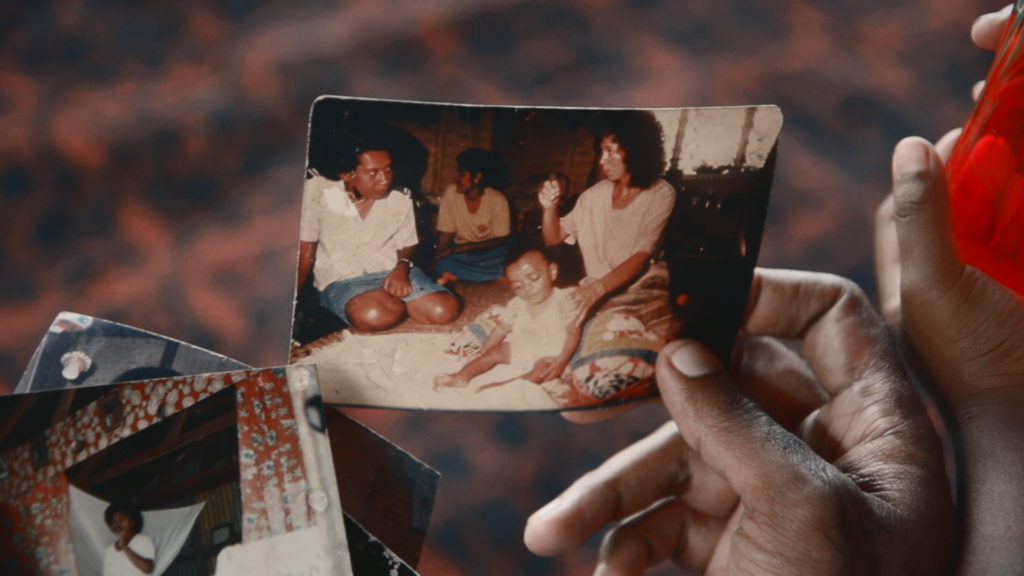
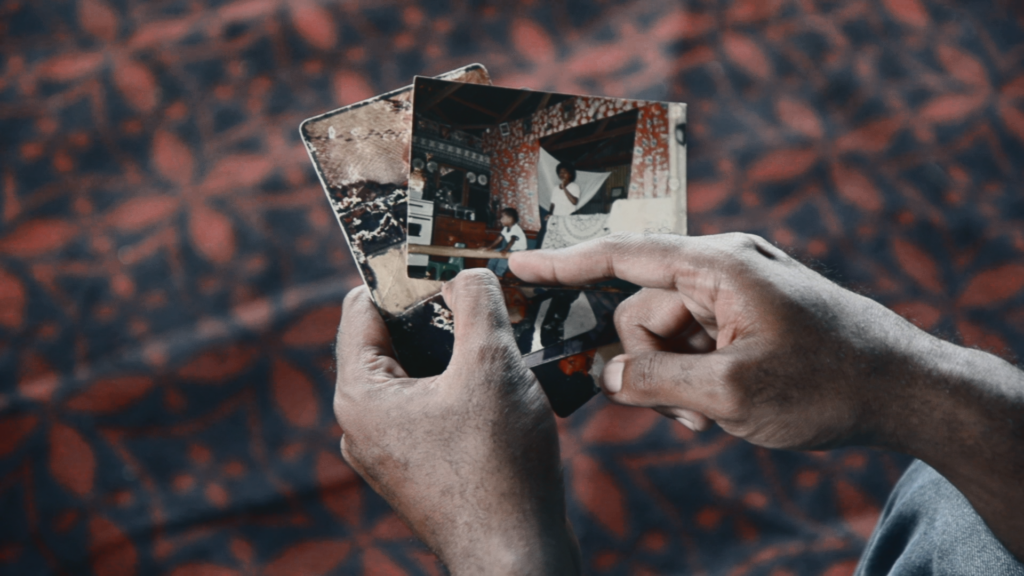
With the right support structures in place, Isireli started school and grappled with difficulties and discrimination around his disability. “For me when I grew up, it’s hard. I went to the mainstream [school], I didn’t see that the kids accept me and my disability.
My parents heard about the Hilton Special School on the radio, so they put me in the school.”
Support from his family, his teachers and Isireli’s own determination and self-believe saw him go on to study IT at university.
These days, Isireli manages his time across a broad range of roles.
He is the Treasurer and President of the Village Community Development Committee, the President of Tailevu South Disability Organisation, and an athlete and member of the Fijian Paralympian squad, specialising in shotput and discus.
In his hometown he set up the local gym and community centre, as well as the library, and he’s a powerful disability advocate with wide-reaching influence.
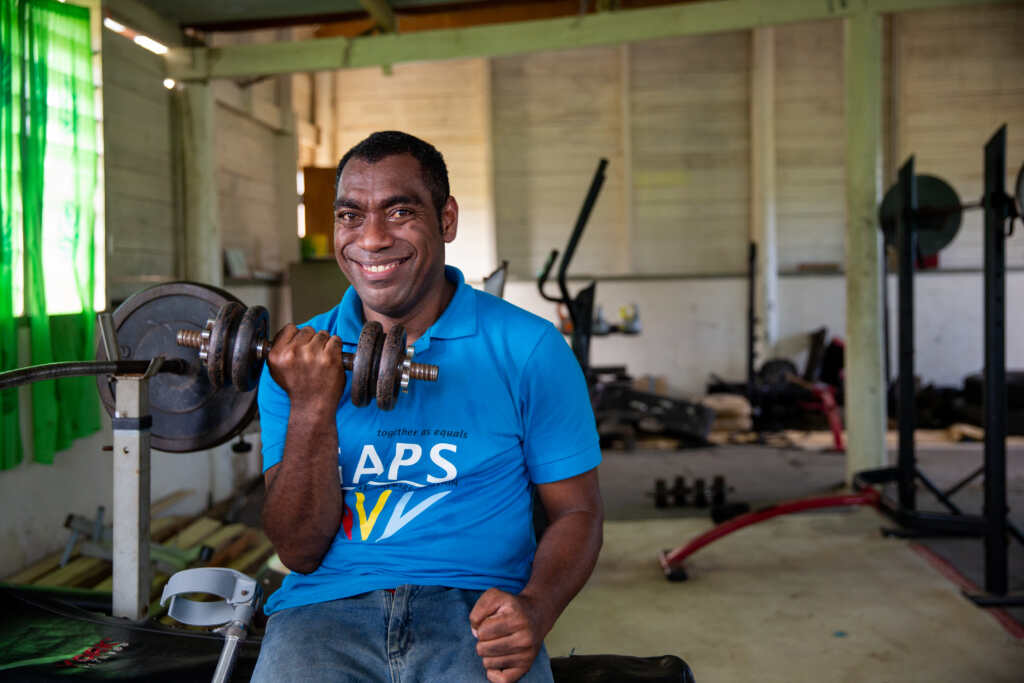
“I’ve been around Tailevu, 69 villages to go and advocate on people with disability. Some of us didn’t know that there’s an organisation in Fiji that helps them if they need to help some,” Isireli said.
While literacy around disability is increasing in Fiji, barriers to inclusion are still prevalent. Public information and infrastructure remains largely inaccessible for people with disabilities in Fiji. “The biggest challenge in Fiji is, accessible”, Isireli said.
“If we need to go to town, some of us we don’t go by bus, we go by taxi. Some of us using wheelchair, we use taxi. The bus is not accessible with disability, and some buildings
“If we need help in the government building this not accessible with the people with the wheelchair, the sign is if the blind there’s no signage there,” says Isireli.
In his disability advocacy work, Isireli uses his own lived experience of overcoming adversity to encourage others to pursue their ambitions, and says, “for people with disability, support should come from home. If your parents are supportive, it’s easy for you to go to school and university.
The people in disability, they need support back home from their community… for them to believe in themselves. People with disabilities need to be loved, if they see that they’re loved, know that they can, they can do whatever they want.”
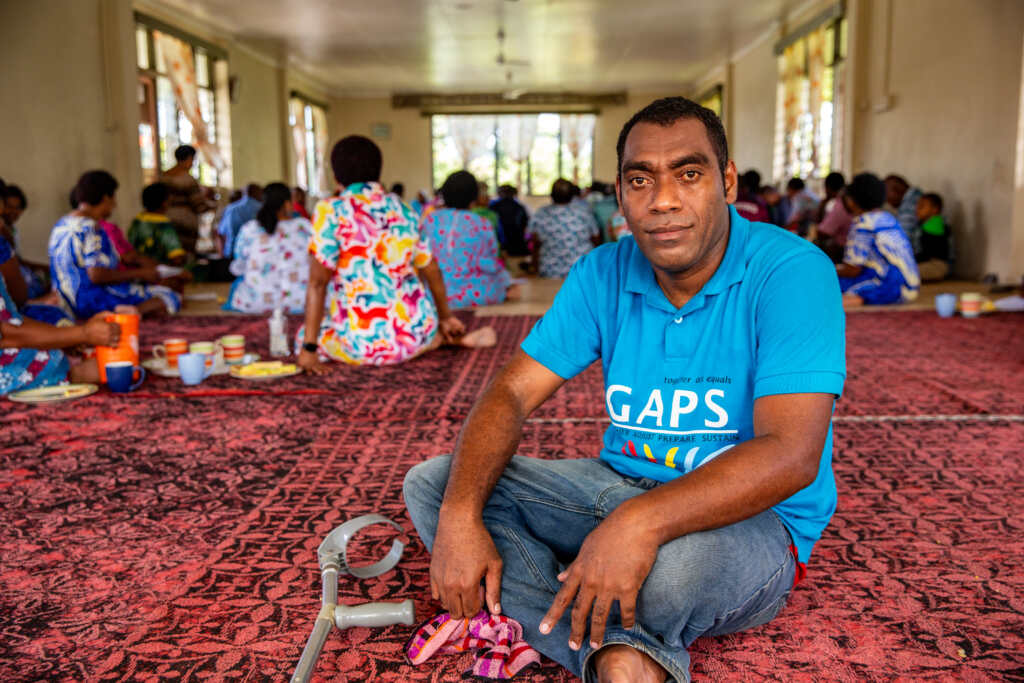
My future, I hope not for me, for all the people with disability should we need accessible so that we can enjoy what able body are enjoying.
To all people living with disability, please, don’t be sad. Come out of your shell.”
This case study was written for International Day of People with Disabilities 2023. Read our other case studies on equal opportunity, disability and female leadership in Indonesia, and disability and the climate crisis.
https://www.cbm.org.au/stories/how-pre-conditions-to-inclusion-changed-the-life-of-one-young-man-in-fiji
Related Stories
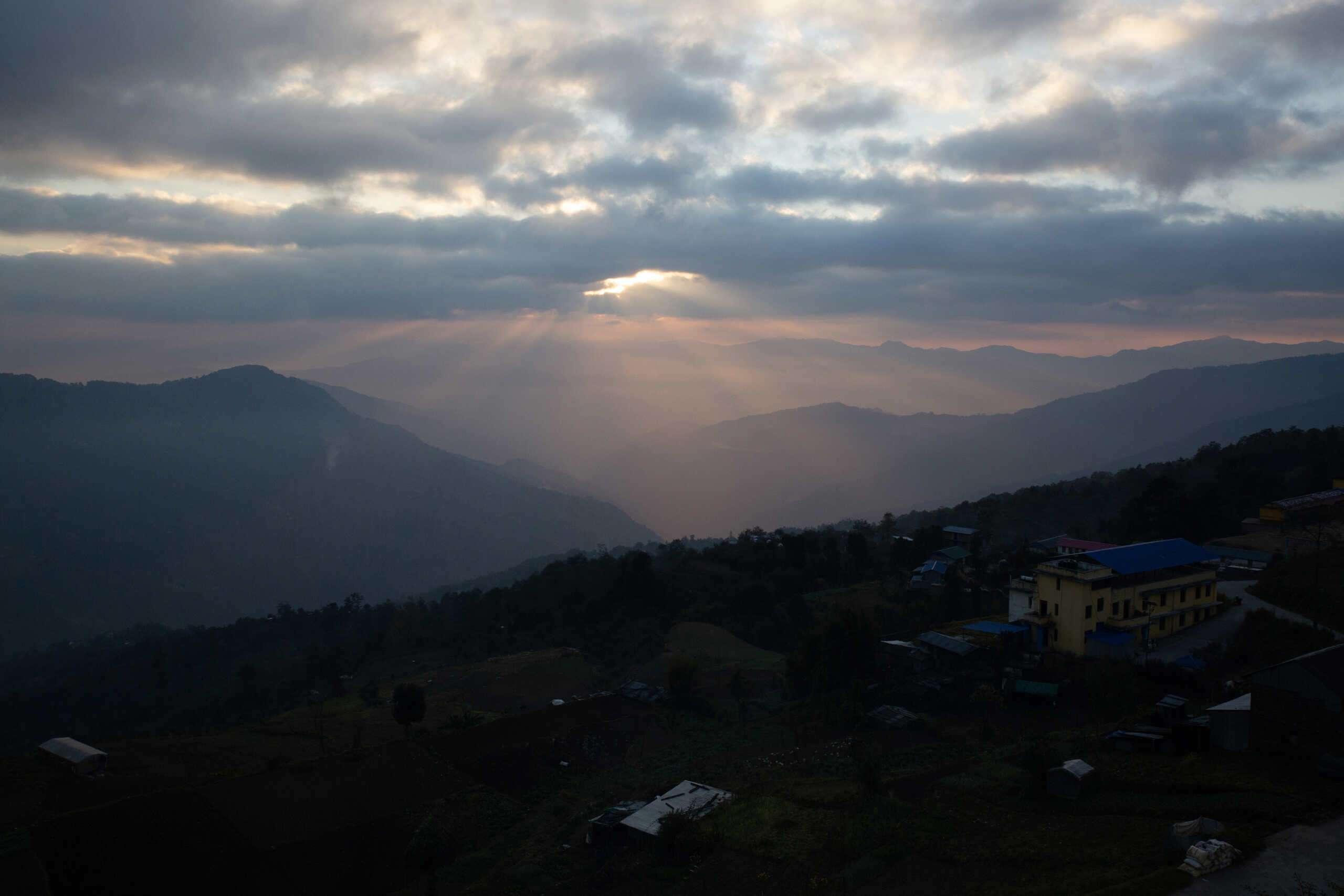
Week 1 – Lent series 2026
As we enter the season of Lent, we’re taking time as a community to pause, reflect, and draw closer to the heart of God. Lent invites...
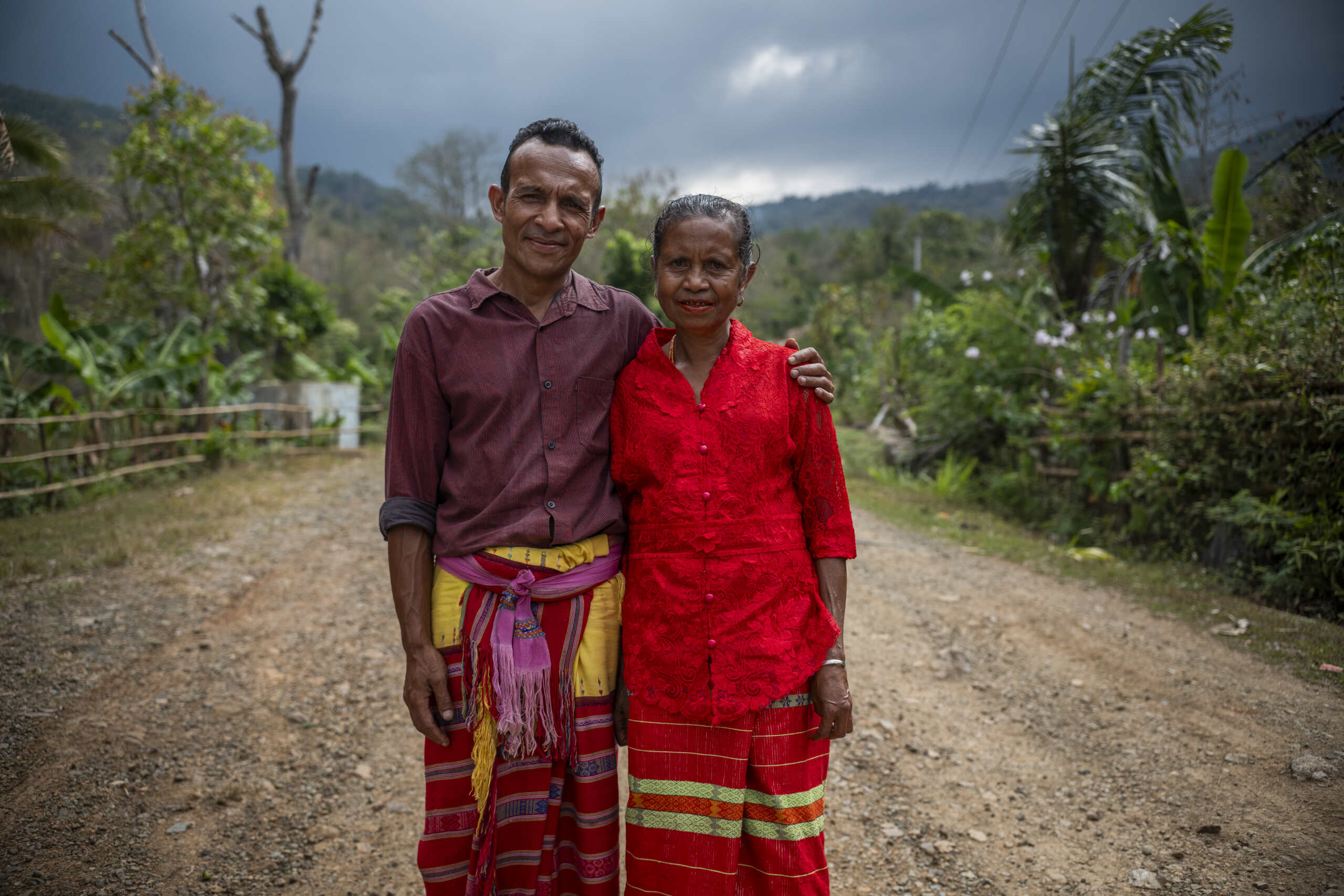
How CBM is making a difference in Indonesia
For more than 45 years, CBM Global has been working alongside communities in Indonesia to ensure people with disabilities...
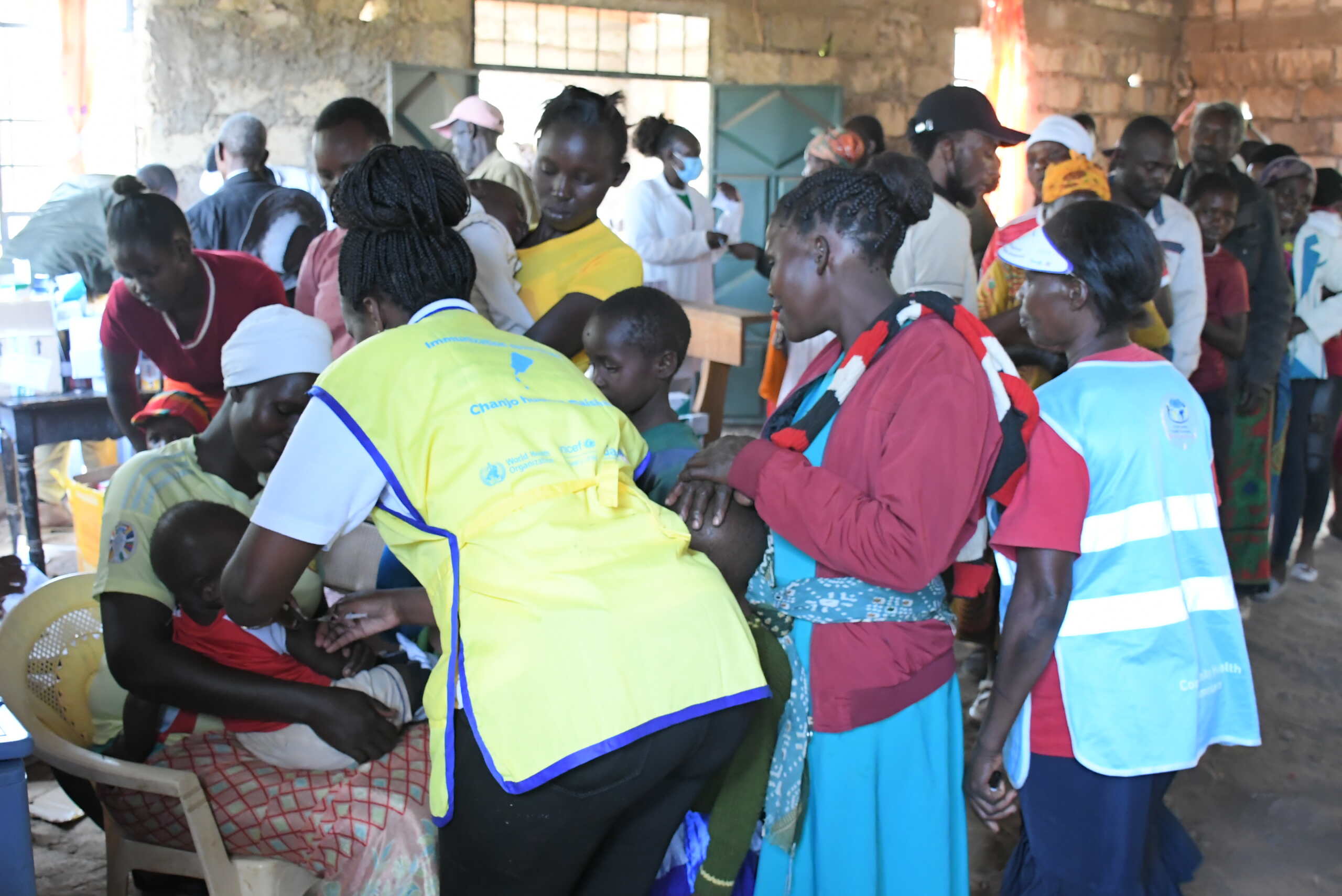
Coordinating inclusive health outreach in Meru County
For many households in Meru’s rural and remote areas, basic health services are physically...
